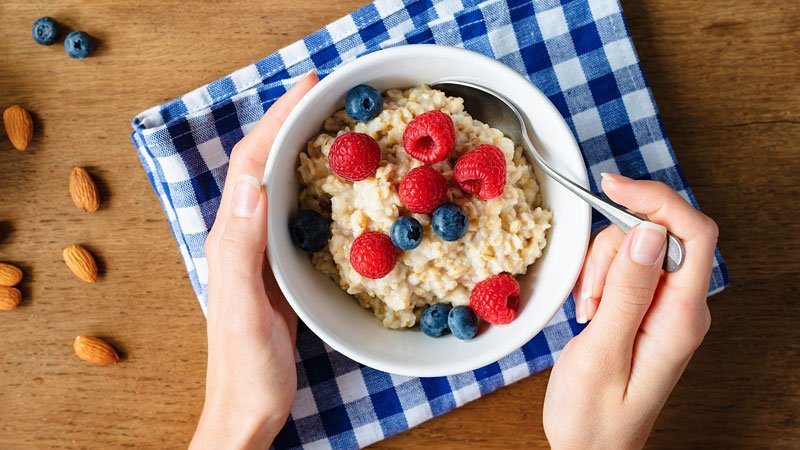Higher fiber intake may be associated with decreased risk of depression in premenopausal women, new research suggests.
Investigators analyzed data from close to 6000 pre- and postmenopausal women. They found that, in premenopausal women, dietary fiber intake was higher among those without depression vs their counterparts with the disorder in a dose-dependent manner. However, there appeared to be no relationship between higher fiber intake and depression risk in postmenopausal women.
“We think the most important finding of our study is that dietary fiber intake was inversely associated with depression in premenopausal but not postmenopausal women,” lead author Yunsun Kim, MD, resident, department of family medicine, Chung-Ang University Hospital, Seoul, South Korea, told Medscape Medical News.
“We hope that the findings of this study could form the basis of future investigations to determine the causal relationship between dietary fiber intake and depression,” she added.
The study was published online December 21, 2020, in Menopause.
Gut-Brain Interaction
The prevalence of depression is twice as high in women compared to men, which may be attributable to a number of factors, including hormonal status —especially during menstruation and menopause, the authors write.
Previous research suggests a potential association between dietary fiber and depression in premenopausal women and between estrogen and gut microbiota. Fiber intake has an impact on gut microbiota, Kim said.
“We are motivated by the fact that depression provokes disease burden internationally and we would like to find modifiable factors that could prevent depression, especially in women, who are more vulnerable to depression,” she noted
To investigate, the researchers drew on data from the Korea National Health and Nutrition Examination Survey (KNHANES) for 2014, 2016, and 2018. Of the total number of women who met inclusion criteria (n = 5807; mean age, 47.11 ± .30 years), roughly half were premenopausal and half were postmenopausal (n = 2949 [mean age, 36.23 ± .25 years] and n = 2868 [mean age, 62.73 ± .23 years], respectively).
Dietary fiber intake was assessed using the 24-hour dietary recall method, while depression was assessed using the Patient Health Questionnaire-9. The researchers used the Dietary Reference Intakes for Koreans to define a sufficient intake of dietary fiber (ie, 12g/1000 kcal).
Covariates included chronic diseases, body mass index, medications, smoking status, alcohol use, physical activity, and sociodemographic factors.
When the researchers looked at all participants, they found that the estimated mean dietary fiber intake was significantly higher in women without depression, compared with those with depression (14.07 ± .11 g/1000 kcal/d [95% CI, 13.85 – 14.29] vs 12.67 ± .45 g/1000 kcal/d [11.79 – 13.55]; P = .003).
Although the relationship remained significant in premenopausal women, it lost significance in postmenopausal women.
|
Table 1. Fiber Intake of Pre- vs Postmenopausal Women |
|||
|
Menopausal Status |
No Depression (95% CI) |
Depression (95% CI) |
P Value |
|
Premenopausal |
12.45 ±.13 g/1000 kcal/d (12.19 – 12.71) |
10.30 ± .46 g/1000 kcal/d (9.39 – 11.20) |
< .001 |
|
Postmenopausal |
16.43 ± .17 g/1000 kcal/d (16.09 – 16.77) |
15.33 ± .72 g/1000 kcal/d (13.91 – 16.75) |
< .13 |
A 5% decrease in the prevalence of depression in premenopausal (but not postmenopausal) women was found in those with an increased intake of dietary fiber — ie, there was a 1-g increase for every 1000 kcal of daily energy intake, after adjusting for potential confounders in premenopausal women (OR, .949 [.906 – .993]).
“The inverse relationship between dietary fiber intake and depression could be explained by the gut-brain interactions,” said Kim.
“Changes in the gut microbiota composition may affect neurotransmission and various neuropsychiatric phenomena in the brain,” she said, noting that previous studies have suggested that dietary fiber intake “may modulate the richness and diversity of the gut microbiota, and this change may promote brain health by affecting neurotransmission.”
Because postmenopausal women experience estrogen depletion, “the decreased interaction between estrogen and the gut microbiota may be related to the insignificant association between dietary fiber intake and depression in postmenopausal women,” she said.
Despite the lack of a significant association between postmenopausal depression and fiber intake, Kim said she “advises middle-aged women to have dietary fiber-rich diets, regardless of their menopausal status.”
Link Between Food and Mood
Commenting on the study for Medscape Medical News, Stephanie S. Faubion, MD, MBA, a professor and chair of the Department of Medicine and the Penny and Bill George director of the Mayo Clinic’s Center for Women’s Health in Rochester, Minnesota, noted the study was cross-sectional and therefore the direction of the association could not be determined and “causality cannot be assumed.”
It is possible that “depressed women are less likely to eat fiber than women without depression. For example, a depressed woman may be more likely to sit on the couch eating Cheetos than shopping for and preparing a healthy meal,” said Faubion, who is also the medical director of the North American Menopause Society (NAMS) and was not involved with the study.
She noted that other potential confounders, including access to fresh fruits and vegetables or geographic locations could also “impact the findings and it is important that we do not somehow imply that eating a high-fiber diet can in any way treat a major depression.”
Nevertheless, the study does “add to the body of evidence suggesting a link between diet and overall health, including brain health,” Faubion said.
One take-home message for practicing clinicians is that a healthy diet that includes fiber may benefit women (and men) for a number of reasons and “appears to be linked to mood.”
More research is needed “to determine the pathophysiologic mechanisms (such as potential brain-gut connection that involves the microbiome) that may explain this association,” Faubion added.
No source of funding listed. Kim, coauthors, and Faubion have disclosed no relevant financial relationships.
Menopause. Published online December 21, 2020. Abstract
For more Medscape Psychiatry news, join us on Facebook and Twitter.
